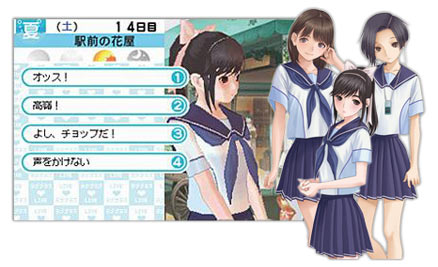Each language has various unique features. One of the interesting aspects of Japanese is that there are multiple first- and second-person pronouns that people can use, depending on their personality. For example, a man might use watakushi for a job interview, boku for casual speaking and the more “manly” ore (oh-reh) if he’s talking with his male friends, while the average girl would use watashi in neutral settings, atashi if speaking to female friends or her boyfriend, or boku if she were a bit of a tomboy. In the dating-sim Love Plus (which I am still playing…just have one more girl to get…) one of the first choices you make in the game is whether to use the more polite but potentially weak-sounding boku or the rougher but potentially rude ore when referring to yourself, which subtly changes how the girls in the game respond to you. One of the three girls you can interact with is Rinka, a classic tsundere, a word which comes from tsun-tsun (angry, proud) and dere-dere (lovestruck). You can tell you’re getting somewhere with the girl when she starts fumblingly referring to herself with the feminine word atashi. Isn’t it fun to learn about Japan through its popular culture?

The pronouns a person uses can tell you lot about their character.















